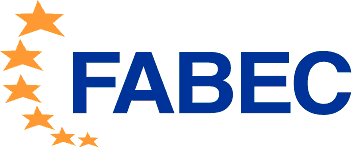DFS and MUAC reducing complexity in the FABEC airspace

On 24 March 2022, the final part of the Cooperative Optimization of Boundaries, Routes and Airspace (COBRA) project, which revises common boundaries to improve flight paths and reduces the need for coordination and tactical interventions in one of the most complex airspace structures worldwide, becomes operational. The results are more optimum profiles and shorter routes for airspace users, resulting in lower fuel consumption and emissions, and increased capacity - in addition to an optimized capacity. The final Central package together with the earlier implemented West package shows the potential to save up to 1,233 flight hours, 3,781 tons of fuel and 11,910 tons of CO2 annually based on 2019 traffic figures.
The COBRA initiative is the result of a partnership between two air navigation service providers (ANSPs) – DFS Deutsche Flugsicherung (DFS) and Maastricht Upper Area Control Centre (MUAC) – located in the busiest European airspace and due to its location, it is a crucial part of FABEC airspace. The initiative was launched in June 2020 and the first part, COBRA West, was implemented in October 2021.
Niels Lokman, Chief Operating Officer, of MUAC said: We used the opportunity of air traffic controller availability due to low traffic demand during the pandemic. This was the first major airspace change that made use of new digital means (Microsoft Teams) thus limiting the amount of face-to-face meetings. The result is a better solution for traffic flows in this region and less complexity in the upper airspace.”
“The aim of all those involved is to continuously prepare for the years ahead and to be ready when traffic recovers. I am very proud of this airspace project, which was developed and implemented during very difficult framework conditions of the COVID crisis. As a result of developing new procedures and introducing modern technology, we ensure we remain competitive and can support the transition to more sustainable operations. FABEC partners are working together to bring these benefits to airspace users while working towards Europe’s green agenda,” said Dirk Mahns, Chief Operating Officer of DFS.
DFS and MUAC began the project with a series of expert workshops dedicated to each COBRA area. In addition to operational experts, these sessions included flow and capacity specialists who examined how to optimise the route structure. New sector boundaries were developed between the FABEC States Germany, Belgium and Luxembourg in preparation for a staged implementation process. The Collaboration Agreement signed by DFS and MUAC extends beyond COBRA to address a range of bilateral measures aimed at improving performance including airspace optimisation, technical cooperation, and harmonisation of air traffic control procedures.







.jpg)


.png)
Comments
There are no comments yet for this item
Join the discussion